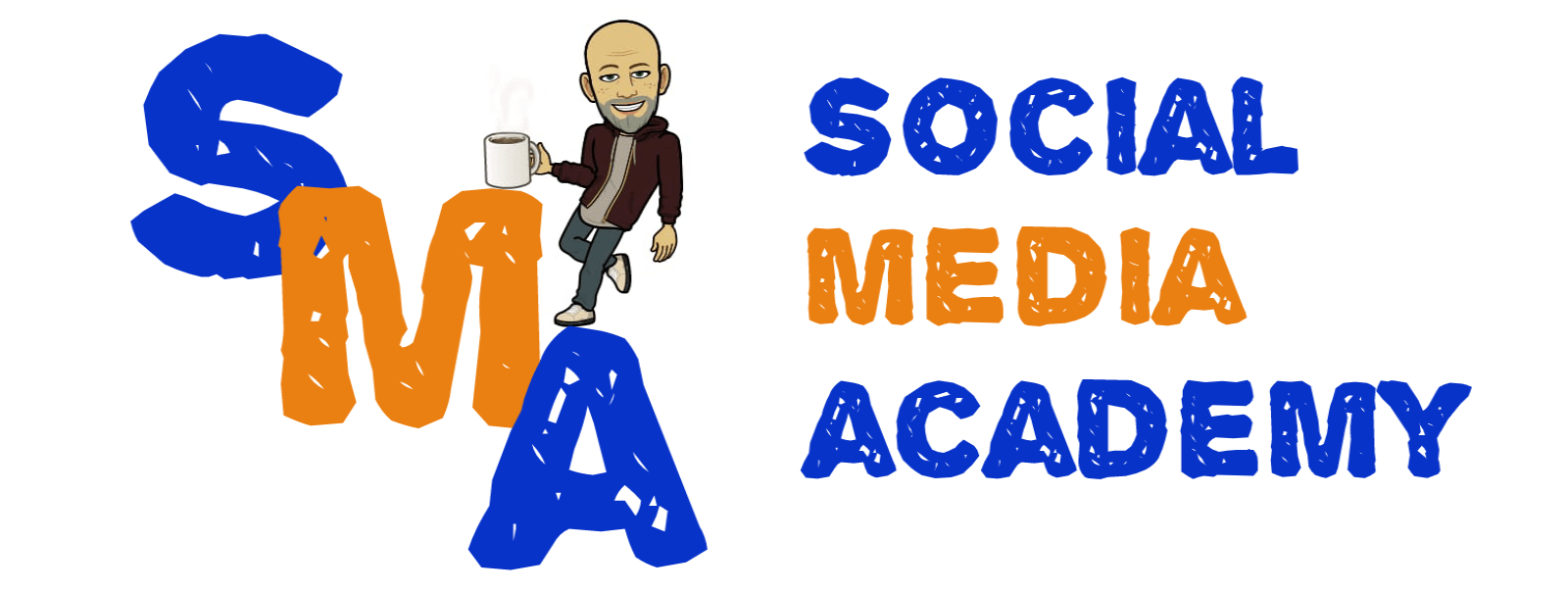my adhd journey
I hope that the following blogs give you an insight into running a business with ADHD and that it helps some of you with practical tips on how to simplify your work utilising some amazing AI tools out there.
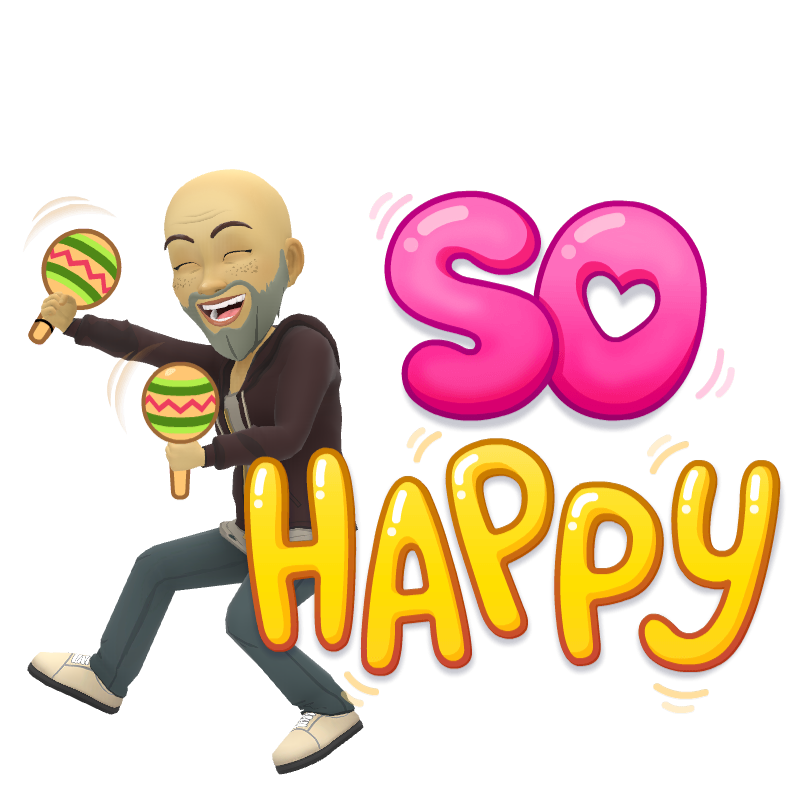
For years, I chased the dream: that one magical app that would do everything. You know the one – CRM, task manager, invoicing, project tracker, all rolled into a single, glorious digital beast. It felt like the answer to all my organisational woes, especially with my ADHD brain. The reality? It ended up having the opposite effect. I'd jump in to add a simple task, and before I could even type it, my eye would catch a notification about an overdue invoice or a deal to chase. My brain would immediately jump ship, and the original task? Gone, vanished into the digital ether. It took me a long time to realise that for a brain that thrives on clear pathways and minimal distractions, the "all-in-one" solution was actually the enemy. My biggest breakthrough came when I embraced the idea of single-function apps . If an app's primary job is to manage tasks, that's all it does. No tempting sidebars, no flashing alerts from other modules. This approach has been a game-changer for my focus and productivity. It's about finding tools that work with my ADHD, not against it, by removing the constant invitation to get sidetracked. This simple philosophy has transformed how I manage my day, my projects, and ultimately, my business. Google's Dynamic Trio: Keep, Tasks & Calendar – When it comes to keeping my day running smoothly, I rely heavily on Google's suite of apps. They're straightforward, widely accessible, and crucially, they stick to their lanes. This "one app, one job" approach is a godsend for my ADHD brain, preventing the digital clutter that leads to distraction. 1. Google Calendar: Your Time Anchor Google Calendar is my digital diary. It's where every appointment, meeting, and time-blocked session lives. Why does it work? It's super simple and visually clear . When I need to add an event, I open Calendar directly, click the time slot, type it in, and add a reminder. Done. No other features to tempt me away. I also use colour-coding for different types of events (work, personal, client calls) for a quick visual overview, and I set up recurring events so I don't have to constantly re-add regular meetings. 2. Google Tasks: Your No-Fuss To-Do List For all my actionable items, Google Tasks is my go-to. It's exactly what it says on the tin: a simple, straightforward list . There are no fancy features to get lost in, which means I can get in, add my task, and get out quickly. I typically open it as a sidebar in my Gmail or Calendar, type the task, and add a due date if needed. For bigger tasks, I break them down into subtasks to make them less daunting. It's quick, efficient, and keeps me focused. 3. Google Keep: Your Digital Scrapbook Google Keep is my versatile space for quick notes, ideas, lists, and saving content. It's incredibly flexible and visually oriented , making it ideal for quickly dumping information without needing to organise it perfectly right away. I use it for jotting down sudden thoughts, creating simple checklists, or – and this is a big one – copying and pasting long articles or content I want to read later. This stops me from getting sidetracked by it right now. I use simple labels (like "To Read" or "Ideas") to easily find notes later, but I don't overcomplicate the system. Gemini: My AI Sidekick and Seamless Integrator For my AI needs, Google Gemini is my chosen agent. While tools like ChatGPT are powerful, Gemini's deep integration with the Google ecosystem is what makes it a game-changer for me, especially with my ADHD. It significantly reduces the friction of moving information between different tools. Gemini isn't just a smart AI that generates text or brainstorms ideas; it's also a fantastic digital assistant that directly interacts with my Google apps. Here's how I use it to keep everything connected: Adding to Calendar: If I'm chatting with Gemini and decide I need to schedule something, I can simply prompt it, "Add 'Client follow-up call at 10 AM tomorrow' to my Google Calendar ." It understands and creates the event directly. Adding to Tasks: Need to remember a new to-do? I just tell Gemini, "Add 'Research new social media trends' to my Google Tasks ." Or even more specific, "Remind me at 3 PM to email Sarah via @Google Tasks ." Saving to Keep: If Gemini generates a brilliant idea or I want to save a summary of a conversation it's helped with, I can instruct it, "Save this response to a new note in Google Keep ." This seamless flow means I can capture information and organise it almost instantly, without losing my train of thought or getting sidetracked by opening multiple apps. It's like having a super-efficient personal assistant who anticipates my next move and keeps everything tidy. Trello: Visualising My Projects (Without the Overwhelm) While my Google apps handle my daily tasks and quick notes, for more structured projects and collaborative work, Trello has proven to be an invaluable tool. It’s a visual project management platform that uses "boards," "lists," and "cards" to organise tasks. What makes it particularly effective for a mind like mine? It's highly visual . My brain loves to see things laid out in a clear, accessible way. This visual structure prevents the information overload that can come with complex projects, allowing me to focus on specific stages without getting lost in the details. Here’s how I use it to keep my projects on track: Separate Boards for Projects: To avoid overwhelming myself, I create a separate Trello board for each major project or client . This keeps everything contained and reduces visual clutter. Simple Lists: Within each board, I stick to very simple, intuitive lists. Typically, these are "To Do," "Doing," and "Done," or specific project stages like "Drafting," "Review," and "Published." This allows me to see progress at a glance. Cards for Tasks: Each individual task within a project becomes a "card." I keep the descriptions on these cards concise and to the point, avoiding the trap of getting bogged down in too much detail at this stage. Colour-coding and Due Dates: I use colour-coding for priority or type of task, and crucially, I set due dates on cards. These visual cues serve as powerful reminders and help me prioritise without needing to dig deep into each task. Trello provides that perfect balance of visual clarity and structured organisation, allowing me to manage larger projects effectively without falling into the "overwhelm" trap. Fireflies.ai & Zoom's AI Companion: My Meeting Memory Boosters Meetings can be a real challenge for many ADHD brains. We want to be present, engaged, and contribute, but also remember every key decision and action point. This often leads to frantic scribbling, missing crucial details, or simply feeling overwhelmed. That's where Fireflies.ai has been an absolute game-changer. Fireflies.ai is an AI tool that joins my online or even in-person meetings. It automatically records, transcribes, and summarises everything that's said. This means I no longer have to worry about taking detailed notes; I can fully focus on the conversation , listen intently, and participate meaningfully. It's truly liberating. Here’s how these tools have transformed my meeting management: Automated Summaries: After every call, Fireflies.ai sends me a concise summary, highlighting key decisions, discussion points, and most importantly, tasks assigned to each participant . This ensures nothing slips through the cracks. Searchable Transcripts: If I need to recall a specific detail from a past meeting, I can easily search the full transcript rather than relying on my often-forgetful memory or trying to decipher hurried notes. Prepared for Next Steps: Before any follow-up meeting, I quickly review the Fireflies.ai summary. This instant refresh ensures I'm always prepared, remembering exactly what was discussed and agreed upon previously. I'm currently trialling Zoom's recently added AI Companion which offers similar functionalities. The goal is to see if I can consolidate my tools and cut down on subscriptions, but the core benefit of automated, intelligent meeting notes remains invaluable. These tools aren't just note-takers; they're memory boosters that significantly reduce post-meeting anxiety and improve my overall productivity. Notion: The "Grown-Up" Experiment (Using it Wisely) So, I'm trying to be a "grown-up" – which, for me, means exploring tools like Notion . It's an incredibly powerful and flexible workspace for notes, tasks, project management, and databases. It promises to do everything, and that's precisely why I'm approaching it with caution! As I've learned, the "all-in-one" solution can quickly become overwhelming for my ADHD brain. My goal with Notion is to integrate it wisely into my existing suite of single-function apps, without falling into the trap of using it for every single thing. It’s a delicate balance, and I'm still in the process of finding the best way to make it work for me, rather than becoming another source of distraction. Here's my current approach to this "grown-up" tool: Single Purpose Focus: Instead of trying to shift all my daily tasks and quick notes into Notion, I'm consciously reserving it for very specific, more formulated processes that genuinely benefit from its powerful database capabilities. Linked, Not Overlapping: The aim isn't to replace my tried-and-tested Google suite or Trello boards. Instead, Notion is meant to complement them. I'm exploring linking information where appropriate, using it for things that benefit from a structured database (like content planning pipelines or detailed client onboarding checklists), while my quick, daily tasks remain firmly in Google Tasks. Controlled Integration: I'm deliberately taking my time to understand its features and how they can enhance, rather than complicate, my existing workflow. It's a careful experiment in leveraging its power without getting lost in its vastness. Notion offers immense potential, but for a brain like mine, the key is discipline and a clear understanding of its role within my overall system. It's a journey towards more sophisticated organisation, but one taken with careful, measured steps.

Right, let's have a proper honest chat, shall we? Looking back at my romantic history, it's fair to say it reads a bit like a comedy of errors – albeit one that probably wasn't all that funny for the leading ladies involved. Two marriages, three other long-term girlfriends… a fair few notches on the relationship bedpost, you might say!! But if I'm truly honest with myself (and with you lot), the trail of bewildered and likely exasperated exes behind me might just have a common denominator: my good old friend, ADHD. It wasn't until later in life that the penny finally dropped, that the whirlwind of my brain had a name. But looking back through the lens of this newfound understanding, so many of my less-than-stellar relationship habits suddenly click into place. Take the forgetfulness, for instance. It wasn't a conscious decision to blank on birthdays or anniversaries; my brain simply didn't flag them as the red-letter days they are. The mental clutter, the lack of organisation that spills out into every aspect of life? That probably didn't scream "stable and reliable partner" either. And my timekeeping? Let's just say "fashionably late" was less of a choice and more of a default setting, a constant source of frustration, I'm sure. Then there's the memory. Or rather, the sieve I seem to have where memories should be. Important dates vanished into the ether, details of conversations evaporated like morning mist. I can only imagine how that felt to someone who expected me to remember the little things, the things that signify care and attention. It wasn't all bad, mind you. I like to think I brought a fair bit to the table. I'm generally easy-going, love a good laugh (and making others laugh), and I genuinely care deeply about the people in my life. When the stars aligned and my brain cooperated, I could even pull off a romantic gesture or two! I'm also a giving person, often putting others' needs before my own – perhaps even to a fault, in my eagerness to please and avoid confrontation. Ah, the people-pleasing. That's another delightful ADHD trait that probably did me no favours in the long run. The desire to avoid conflict, to keep the peace at all costs, often meant I wouldn't address underlying issues, letting them fester until they inevitably blew up. And then there's my relentless obsession with ambition and work. That hyperfocus, that all-consuming drive to succeed professionally? It often came at the expense of nurturing my relationships, leaving partners feeling like they were playing second fiddle to my career. But let's be fair, it wasn't all me, was it? Relationships are a two-way street, and no one is perfect. But as I navigate this stage of life, the allure of solo living has become increasingly strong. The thought of constantly having to navigate the complexities of a long-term relationship, the potential for misunderstandings fueled by my ADHD quirks, the need for constant communication and compromise… well, the quiet comfort of my own company often seems a far more appealing prospect these days. Perhaps it's a form of self-preservation. Perhaps it's simply an acceptance of who I am and what I find easier. Either way, looking back, it's hard not to wonder if my wonderfully wired brain, with all its quirks and foibles, played a significant role in the romantic rollercoaster I've experienced. Maybe understanding this now is the first step towards a different kind of relationship – the one I have with myself, in the peaceful solitude of my own company. And honestly? Right now, that feels pretty good.

Ah, finances. The very word can evoke a range of emotions, from mild confusion to outright panic, especially for those of us whose brains tend to operate on a more… creative wavelength. For me, the world of balance sheets, VAT returns, and forecasting often feels like trying to decipher an ancient alien language. And let's not even get started on the shiny things. The magnetic pull of a new gadget, a "must-have" tool, is often irresistible. Logic and existing possessions be damned! The justification for why this new acquisition is absolutely essential is usually swift and convincing, even if I already own something remarkably similar – or, in some truly spectacular cases, the exact same thing that has simply vanished from my awareness. Take the saga of the man bag. A couple of years ago, the thought of a new laptop bag took up significant real estate in my brain. Sleep was a distant memory as I eagerly awaited its arrival from the Amazonian depths, completely disregarding the small mountain range of perfectly functional bags already residing in my wardrobe. The grand unveiling was… anticlimactic. It was a good-looking bag, no doubt, but a crucial two inches too small for my laptop. Now, a rational person might have simply returned it and ordered the correct size. Not me. In a feat of mental gymnastics, I convinced myself that what I really needed was a smaller laptop – lighter on the back, you see! A swift trip to Currys ensued, and a new, smaller laptop was acquired to fit the undersized bag. Fast forward two years to this very week. Browsing a gadget shop with my daughter, a beautiful laptop catches my eye. The familiar "I must have it" siren song begins to play in my head. My daughter, bless her observant soul, gently reminds me, "Dad, aren't you sure you have one of those at home?" And there it was. The very same small laptop I'd bought to fit the ill-fated man bag, used for a week, and then completely forgotten about until this very moment! The financial logic? Non-existent. The allure of the shiny new thing? Utterly compelling. Then there's the treacherous landscape of subscriptions. As I’ve confessed before, my enthusiasm for new software solutions often outweighs my follow-through. The siren call of a free thirty-day trial is almost impossible to resist. "I can always cancel," I tell myself, knowing full well that the likelihood of "future Phil" remembering to do so is slim to none. The result? Monthly direct debits silently draining my bank account for software I’ve long forgotten I even signed up for, let alone used. The fear of actually checking my bank statements only compounds the problem, allowing these phantom subscriptions to continue their stealthy financial drain. Running two limited companies, both VAT registered, only amplified my financial anxieties. The deadlines, the paperwork, the constant need for meticulous record-keeping – it was a recipe for overwhelm. After years of last-minute tax returns and a general feeling of being perpetually behind the financial curve, I finally realised I needed help. Now, you might reasonably ask, "Why not just hire a bookkeeper, Phil?" And that was a logical consideration. However, after years of feeling like I was constantly scrambling to scale the business while simultaneously battling financial admin, I recognised the need for someone more… well, "grown-up" than me to take the reins. Someone whose primary focus would be keeping the finances in order. Bringing Rob on board as a business partner was one of the best decisions I've ever made. Having known him for years, trust wasn't an issue. Suddenly, tax returns were filed on time, bills were paid promptly, invoices went out like clockwork (and were actually chased if they weren't paid – a task my inner people-pleaser found excruciating!). Crucially, any new software subscriptions now had to pass the "Rob Test." His sensible approach, allowing a few days of consideration before committing, usually gave my impulsive brain enough time to move on to the next shiny object, saving us a considerable amount of money in the process. So, if you're an entrepreneur, especially one who recognises some of these financial foibles, take the sensible route. Either outsource the financial aspects that consistently wreck your head, or, if you can, find your own "Rob" – someone grounded and financially savvy to keep you on the straight and narrow. Trust me, the peace of mind (and the savings!) will be more valuable than any fleeting gadget.
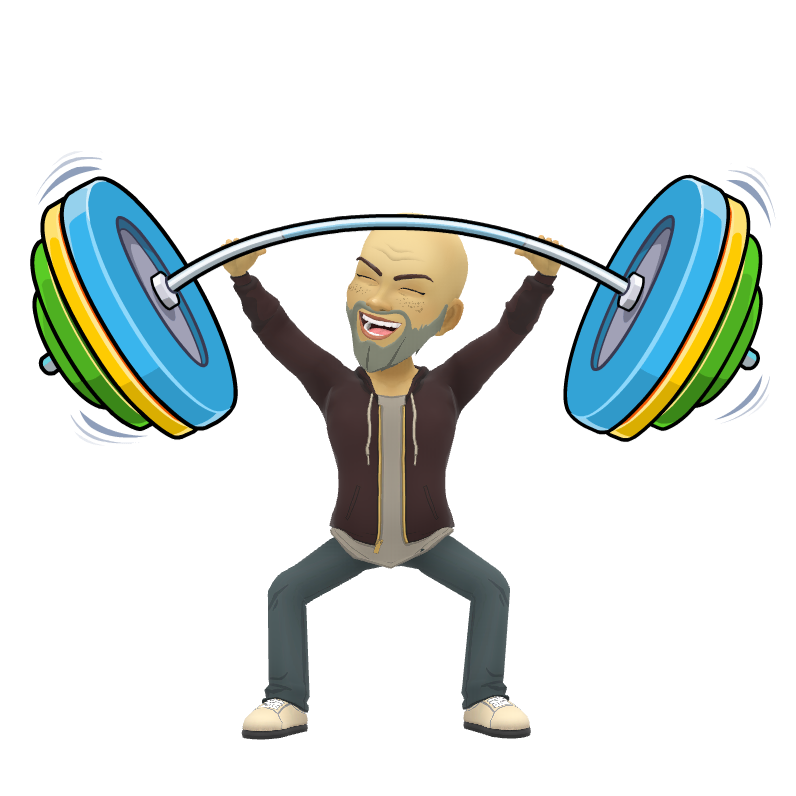
So, seventeen years immersed in the ever-evolving world of marketing. And the grand total of formal training or qualifications I possess? Zilch. Nada. Not a sausage. It's all been a glorious, self-taught adventure, fueled by curiosity, a healthy dose of trial and error, and, I’m increasingly convinced, the wonderfully wired workings of my ADHD brain. My first proper plunge into the choppy waters of self-employment came with GOSH, my foray into the world of women’s and children’s footwear. This was a pre-internet, pre-social media landscape. We’re talking proper old-school marketing: newspaper ads, painstakingly designed (and probably slightly wonky) flyers, and the sheer graft of getting the word out on the physical streets. Looking back, I realise this forced me to tap into something that now feels intrinsically linked to my ADHD: the ability to think completely outside the box. It wasn’t a conscious strategy; it was more a case of my brain naturally veering off the well-trodden path and stumbling upon unexpected solutions. Turns out, that’s one heck of a superpower. One of my early “ahead of the curve” moments, as I see it now, was my slightly obsessive approach to customer data. Every single person who made a purchase was politely (and probably rather enthusiastically) asked for their name, address, and phone number in exchange for the chance to win a voucher. The response rate was phenomenal – I reckon over 90% happily obliged. This treasure trove of information then allowed me to send out quarterly postcards, handwritten addresses and all, adorned with stamps and offering enticing discounts. Hours were spent hunched over the kitchen table, licking stamps and feeling like a Victorian postal worker. But you know what? It bloody well worked. People felt valued, remembered, and they kept coming back. Then there were the more… direct marketing strategies. I vividly recall one occasion when I decided the best way to drum up business was to literally stand in the middle of town handing out leaflets. My focus, as is often the case with ADHD, was singular and intense. I was in the zone, a human flyer-dispensing machine! So much so that one of my poor staff members had to physically run to find me, breathlessly informing me that the shop was now overflowing with eager shoppers, all thanks to my impromptu street performance. And who could forget the time I donned a full Santa Claus costume on a sweltering summer’s day, brandishing a hand-painted sign proclaiming a “One Day Sale”? The sheer absurdity of it stopped people in their tracks, and yes, it brought customers flooding in. My brain just seems to latch onto the unexpected, the slightly bizarre, the things that cut through the noise. Another “genius” (in my own slightly biased opinion) marketing tactic involved getting a hundred laminated signs made and strategically placing them on lampposts and railings all over town. They were bright, bold, and undeniably eye-catching. And they worked wonders… until the council slapped me with a hefty £500 fine for illegal advertising! Thankfully, the increased business more than covered the cost, a testament to the effectiveness of thinking… well, differently. Looking back, these weren’t calculated marketing strategies born from textbooks or business school seminars. They were the impulsive, energetic, and sometimes slightly chaotic actions of an entrepreneur whose brain just operates on a different frequency. What might seem like a lack of focus to some is, in reality, a constant stream of ideas, a relentless pursuit of what might work, and a fearless willingness to try the unconventional. This inherent “think different” capability, I’m increasingly convinced, is a significant advantage of having ADHD in the business world. Over the past seventeen years, as I’ve transitioned into helping other business owners navigate the digital landscape, I’ve found that my brain’s unique wiring allows me to see opportunities and solutions that others might miss. Give me a brief overview of any business, and within a remarkably short space of time, my mind will be buzzing with a multitude of ways to get their message in front of potential customers without needing a bottomless pit of cash. It’s not always smooth sailing, of course. The very traits that fuel this creative thinking can also present challenges – the distractibility, the impulsivity, the occasional struggle with organisation. But understanding these aspects of the ADHD mind, both the strengths and the challenges, is crucial for anyone navigating the entrepreneurial world with a neurodivergent brain. It’s about harnessing the superpowers while putting systems in place to manage the kryptonite. And trust me, there’s a whole lot of superpower to unpack.
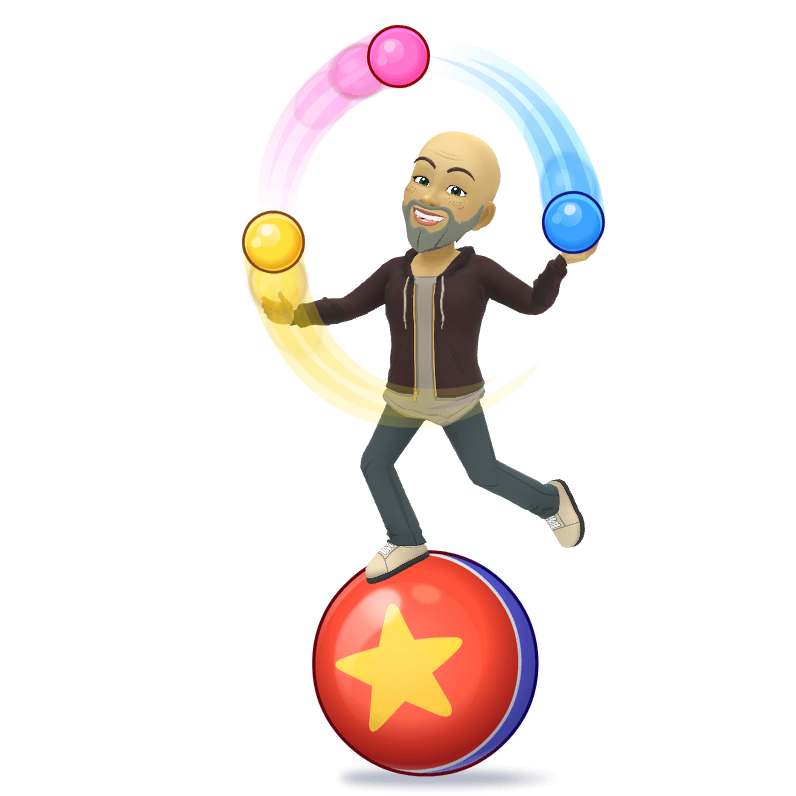
Right, let's talk about the nitty-gritty. Now, I'm no guru on this ADHD lark – I'm still very much on my own learning curve, piecing together the jigsaw puzzle of my life through this new lens. But after over half a century of unknowingly navigating this neurodivergent landscape, I reckon I've picked up a few things. And if sharing some of my own peculiar traits helps even one other person out there who's been feeling similarly… well, then this chapter’s done its job. First up, the sheer volume of stuff happening in my brain at any given moment. It's like trying to attend seventeen different events simultaneously, all within the confines of my skull. I often liken it to a full-blown circus. Picture this: trapeze artists swinging wildly between thoughts, a parade of elephants marching through half-formed ideas, clowns juggling to-do lists that keep multiplying, and a ringmaster (that’s supposed to be me) desperately trying to get everyone to focus on the main act – whatever that main act is supposed to be at that particular moment! It’s exhilarating and utterly exhausting all at once. And then there are the glorious, meandering adventures of my attention span. Take the simple task of unloading the washing machine. In a neurotypical world, this is a straightforward A-to-B mission. In Phil’s world, it’s an epic quest with multiple enticing side quests. On my way to the laundry room, I might suddenly decide that what the kitchen really needs is a culinary masterpiece. So, I’ll start gathering ingredients, only to notice a rogue sock on the floor, which then triggers a mini-tidying spree. Of course, the tidying is never completed. A glimpse out the window reveals the overgrown state of the lawn, and suddenly I’m convinced that urgent horticultural intervention is required. Before I know it, I’m in my car, halfway to the drive-through coffee shop, completely forgetting the damp laundry languishing in the machine, the half-chopped onions on the counter, and the jungle that was once my lawn. The grand finale? Returning home to utter chaos, feeling inexplicably drained, and battling the overwhelming sense that I’ve achieved absolutely nothing. The irony, of course, is that I’ve probably initiated half a dozen tasks, just not finished any of them. Which neatly brings me to the ever-present companion of the ADHD entrepreneur: guilt. A heavy, often unwarranted, weight that seems to settle in my chest. Guilt for not achieving enough (even when I’ve been buzzing around like a caffeinated bee all day). Guilt for not spending enough quality time with family and friends, a feeling often exacerbated by the next delightful ADHD trait… Making plans. Oh, the tangled web of good intentions and subsequent guilt. As a natural people-pleaser, my initial response to any invitation is an enthusiastic “Yes!” My brain, in that moment of social connection, genuinely wants to be there. But then, almost immediately, the internal debate begins. Will I really feel like it then? What other urgent (and often self-imposed) tasks will crop up? The result? A frantic mental scramble to come up with a plausible excuse, followed by a fresh wave of guilt for letting people down and further reinforcing the feeling of being a flaky friend. It’s a truly draining cycle. Ah, the siren call of shiny new things! The fixation on buying. It can strike at any moment, triggered by the most innocuous thought. Suddenly, I need that widget, that gadget, that brightly coloured… something. My brain launches into a full-scale justification campaign, meticulously outlining all the logical (and often wildly illogical) reasons why this purchase is absolutely essential for my survival/business success/general well-being. I’ll then embark on a mission to acquire said item, often getting lost in a rabbit hole of online reviews and comparisons. This can lead to one of two outcomes: either I become so overwhelmed by the sheer volume of choice that I abandon the purchase altogether, experiencing a bizarre sense of relief at having “saved” all that money. Or, I’ll finally make the purchase, experience a fleeting moment of intense excitement during the unboxing, only for the novelty to wear off almost instantly. The prized possession will then be relegated to a dusty corner, only to be rediscovered a year later, sparking the exact same cycle of intense interest followed by rapid disinterest. It’s like Groundhog Day, but with impulse buys. And then there’s the eternal struggle with decluttering. The noble intention to create a serene and organised environment often starts with a burst of hyperfocus. I’ll enthusiastically gather items to be thrown away or donated, creating impressive piles of potential freedom. But then, the “what if?” gremlins start whispering in my ear. “What if you need that chipped mug for a future craft project?” “That slightly stained t-shirt might be perfect for painting!” One by one, items are rescued from the discard pile, deemed too valuable (in some abstract, future scenario) to part with. The end result? The decluttering mission ends with everything being put back exactly where it was, possibly even more jumbled than before. Finally, the pendulum swing of tidiness. There seems to be no middle ground in my world. It’s either a state of hyper-focused, almost obsessive tidying, where every surface gleams and every item is in its designated place (a state that rarely lasts long), or a descent into glorious, chaotic disarray. The washing up can pile up for days, creating a precarious tower of dirty dishes, while other areas of the house might resemble a meticulously organised stationery shop. It’s a constant battle between these two extremes. These are just a few glimpses into the wonderfully weird and often challenging world of my ADHD brain. It’s not a deficit; it’s a different way of processing the world, with its own unique set of quirks, strengths, and, yes, occasional frustrations. But understanding these traits is the first step towards navigating them more effectively, especially in the demanding world of small business. And trust me, there’s plenty more to unpack as we go along.
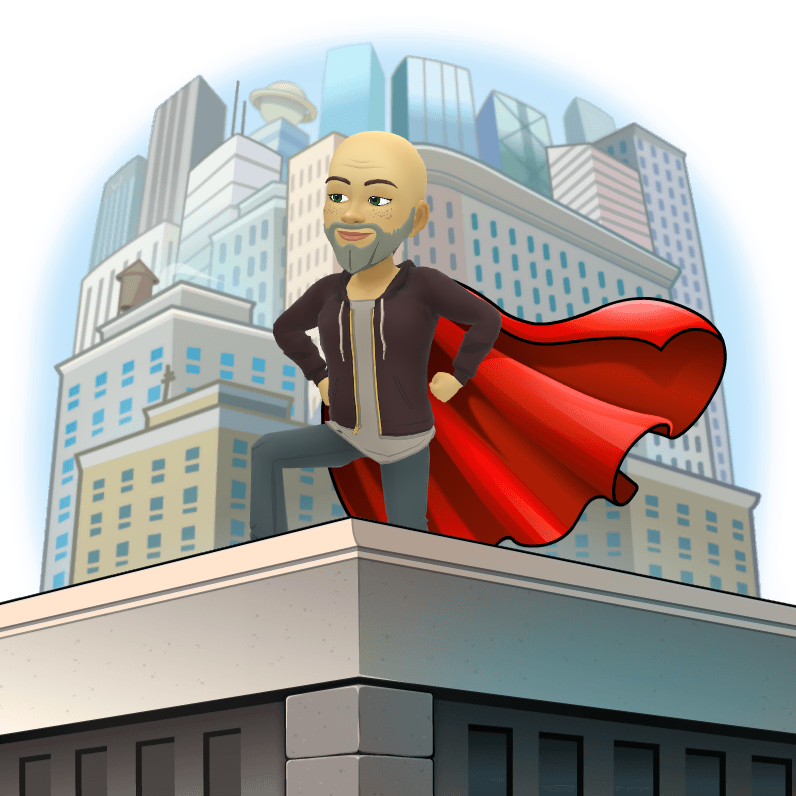
If there's one thing that can keep me awake at night, it's the thought that someone, somewhere, might not think I'm… well, a great lad. It sounds a bit ridiculous when I write it down, but the desire for universal approval is a powerful, often crippling, force in my life. I desperately want everyone to see Phil as the funny, caring, helpful bloke next door. The idea of someone disliking me, even a casual acquaintance, can genuinely be quite devastating. This deep-seated need to be liked often manifests as a chronic case of people-pleasing. I find myself agreeing with much of what people say, even if my internal compass is pointing in a slightly different direction. It's the path of least resistance, the quickest way to (hopefully) secure that nod of approval, that smile that confirms, "Yes, Phil, you're alright." It's a constant, often subconscious, performance aimed at ensuring I don't ruffle any feathers or, heaven forbid, elicit a negative reaction. Interestingly, there's a flip side to this coin, albeit a less frequent one. If something truly ignites my passion, if it aligns with one of my (sometimes fleetingly intense) interests, then a stubborn streak can emerge. I might find myself putting forward arguments, engaging in discussions, even disagreeing with someone. But even in these moments of conviction, the underlying fear of disapproval is still there. I’ll carefully frame my points, ensuring they don't come across as aggressive or confrontational, always mindful of that dreaded possibility – that the other person might not like me anymore. The aftermath of these (relatively rare) moments of disagreement can be surprisingly torturous. I can lie awake in bed, replaying the conversation endlessly, convinced I've somehow offended or upset the other person. The guilt gnaws at me. Should I have said it differently? Did I come across as rude? The fear of confrontation, often a significant hurdle for people-pleasers, then prevents me from broaching the subject directly. I’ll stew in my anxiety, concocting elaborate scenarios of their potential displeasure, while the other person, who may have simply enjoyed a healthy debate, probably hasn't given it a second thought. For them, a difference of opinion is just a normal part of life. For me, it can feel like a social catastrophe. It's utterly draining, this constant internal monitoring of how I'm perceived. This people-pleasing tendency has undoubtedly shaped many of my decisions, both personally and professionally. In the early days of my businesses, it sometimes led to saying "yes" to opportunities that weren't quite right, simply because I didn't want to disappoint someone. It could also manifest in an over-eagerness to please customers, sometimes at the expense of my own time and resources. Understanding this aspect of my personality, and how it might be intertwined with my ADHD (the heightened sensitivity to social cues, the desire for external validation), is another piece of the puzzle. It's a reminder that while wanting to be liked is a natural human desire, the intensity of this need can sometimes be a hindrance. Learning to set boundaries, to express my own opinions without the crippling fear of disapproval, and to recognise that not everyone will like me (and that's okay!) is an ongoing process. It's about finding a balance between being a genuinely good person and protecting my own mental well-being from the relentless pursuit of universal approval. It's a tough one, this, but acknowledging it is the first step towards a slightly less anxiety-ridden existence.
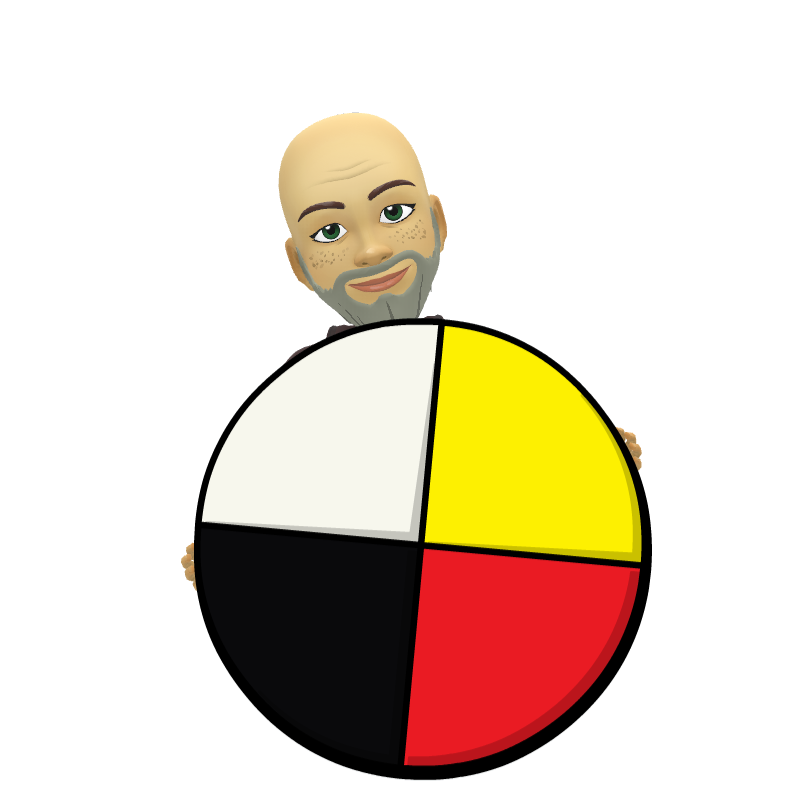
My early childhood was marked by a significant shift, one that felt rather unusual in the UK of the 1970s: my parents divorced when I was around four years old. Looking back, there was perhaps a subtle stigma attached to being from a "broken home," as it was often termed back then. But if there was any negativity, my mum shielded my sister Tanya (three years my senior and my lifelong confidante) and me from it with unwavering strength. Mum was, quite simply, a force of nature. As a single parent, she worked tirelessly, relentlessly even, to ensure Tanya and I never felt like we were missing out. She was determined to maintain a lifestyle that kept us on par with our friends, a testament to her fierce love and dedication. We saw Dad every weekend, which was a constant and comforting presence, but home was undeniably where Mum was, even though both were our rock in different ways. One of the most remarkable aspects of our family dynamic, even to this day, is the almost complete absence of arguments. The four of us – Mum, Dad, Tanya, and me – have navigated life's ups and downs without ever descending into full-blown slanging matches. Now, as I reflect on the previous chapter about my people-pleasing tendencies, I can see how this might have been ingrained from an early age. I'm sure we've all irritated each other at various points over the years, but a combination of politeness, mutual respect, or perhaps an unspoken desire to maintain harmony has always prevented things from escalating. It's a testament to the way we were raised, this quiet, almost serene coexistence. Growing up with a single parent meant that the luxuries enjoyed by some of our peers – the big, extravagant presents, the exotic holidays – were not a regular feature of our lives. However, and this is a crucial point, we never felt deprived. Mum's hard work ensured we were always provided for, and perhaps as a result, Tanya and I developed a deep appreciation for the smaller things in life. A new book, a special treat, a day trip to the coast – these were treasures to be savoured. Thankfully, this appreciation for the simple joys has carried through into my adulthood. Looking back, my upbringing as the child of a determined single mother in a less understanding era undoubtedly shaped my character. It instilled in me a strong sense of resilience, an understanding of hard work, and perhaps, subtly, reinforced that desire to please, to avoid conflict, to contribute to a peaceful and stable environment. It was a childhood filled with love and unwavering support, even if it didn't always follow the conventional path. And for that, I am eternally grateful. It laid a foundation that, despite the later discovery of my ADHD, has helped me navigate the complexities of life and business with a quiet strength and an enduring appreciation for the simple things.
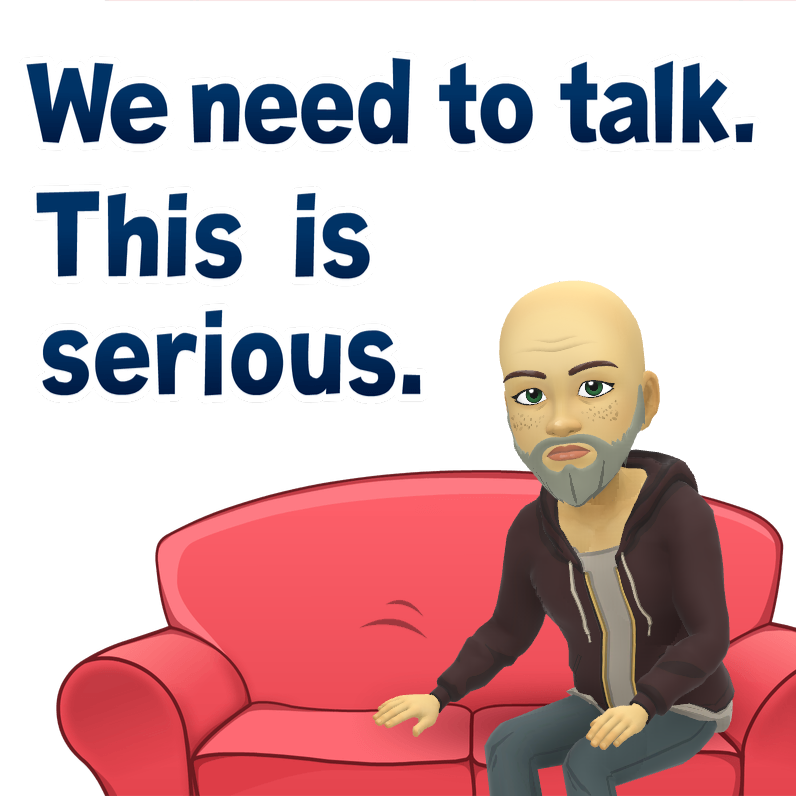
The moment the pieces of the puzzle clicked into place, the realisation that ADHD might be the explanation for so many of my lifelong quirks, was less a moment of despair and more one of… liberation. Finally! There was a potential reason why my brain felt like a perpetual pinball machine, why focus could be so elusive, and why I could start a dozen tasks without finishing a single one. This wasn't about finding an excuse; it was about finding an explanation. And honestly, I was quite excited to share this newfound understanding with the people closest to me. Because I've never viewed ADHD as an illness – in fact, as you'll have gathered, I see many of its traits as superpowers – my approach to sharing my diagnosis was probably a little… unconventional. There was no solemn announcement, no tearful confession. Instead, it tended to be delivered with a dash of humour and a large helping of my characteristic upbeat enthusiasm. It often sounded something like, "You know how I always [insert quirky ADHD trait here]? Well, it turns out there's a reason for that! I've got ADHD!" My intention wasn't to elicit sympathy but to offer an explanation, a way to say, "Hey, I'm not deliberately being forgetful/distracted/all-over-the-place; this is just how my brain works." It was a way to gently push back against the internalised narrative of being "thick" or "stupid." However, the reception wasn't always the celebratory parade I might have naively hoped for. While ADHD awareness has certainly grown, thanks in part to the openness on social media, there's still a significant segment of the population who view it with scepticism. Some see it as a trendy label, an easy excuse for perceived shortcomings. Hearing this, especially from those I cared about deeply, was genuinely upsetting. It felt like they were dismissing my lifelong struggles, implying that I was somehow using this diagnosis as a convenient crutch to explain away aspects of my behaviour that they found… well, different. And let's face it, my way of navigating life does tend to be a little off the beaten track (more on that in a future chapter, as promised!). This scepticism made me feel incredibly vulnerable, as if I were indeed trying to make excuses for the very fabric of who I am. It brought back those old feelings of inadequacy, the whispers of being "not quite right." To counter this, I found myself sharing videos and articles about ADHD, hoping to offer a glimpse into my internal world, to illustrate the very real challenges I face with focus, organisation, and emotional regulation. And, ever the people-pleaser, there was an underlying hope that by understanding the "why" behind some of my more… endearing (I hoped!) traits, those around me might not only understand me better but perhaps even like me a little more. It's a constant yearning for connection and acceptance. The reality is, the naysayers may never fully grasp the nuances of living with ADHD unless they or someone they love experiences something similar. But perhaps, and this is a significant driving force behind this book, by putting my experiences down in black and white, I can offer a window into my world. Maybe, through these pages, those closest to me, and even those who hold preconceived notions, can gain a deeper understanding of the daily realities of navigating life with an ADHD brain. It's a hope rooted in a desire for connection, for empathy, and for a little less of that gnawing feeling that I need to constantly explain – and justify – the way I am.

For those of us whose brains operate at a slightly different frequency, the right tools and systems aren't just helpful – they're essential for navigating the often-chaotic world of small business. It's about creating a framework that supports our strengths while mitigating the challenges that can come with ADHD, such as distractibility and difficulties with organisation. Over years of trial and error, I've discovered a few key allies in this endeavour. Whiteboard: Your Visible Anchor Digital tools are powerful, but sometimes the simplest solutions are the most effective. A whiteboard in your workspace can be a game-changer. Its constant visual presence acts as an immediate reminder for key tasks, both work and personal. Unlike information hidden within a device, it's there, in plain sight, every time you glance around. It's perfect for jotting down top priorities, quick reminders, and even those fleeting thoughts that might otherwise vanish. Plus, the tactile satisfaction of physically wiping off completed tasks offers a small but significant dopamine hit! CRM (Customer Relationship Management): Your Contact Hub In essence, a CRM is a system for organising and managing all your interactions with contacts, from initial enquiries to loyal customers. It's about keeping track of who you've spoken to, what you discussed, and where they are in the buying cycle. Using a CRM, especially one with a visual drag-and-drop pipeline (like HubSpot or even the list feature in Trello), allows you to see at a glance where your relationships stand and ensures no potential connection falls through the cracks. This centralisation is crucial for staying organised and nurturing those valuable business relationships. Visit Hubspot here Google Suite: Your Integrated Powerhouse Google's suite of free and user-friendly tools offers seamless integration, which can be a significant advantage for streamlining workflows: Google Sheets: For data tracking, list-making, and organising information. Google Forms: For easy creation of surveys and feedback collection. Google Slides: For visually presenting ideas and information. Google Calendar: For scheduling and reminders to manage your time. Google Drive: For central cloud storage of all your important files. Google Tasks: A simple yet powerful to-do list that integrates directly with Gmail, keeping your tasks visible within your inbox. Visit Google Tools here Trello (or Similar Kanban Tools): Your Visual Organiser Platforms like Trello, with their visual board and card system, provide a fantastic way to organise projects, tasks, and ideas. Creating boards for different clients, projects, or even stages of a process allows you to see the big picture and track progress at a glance. The drag-and-drop functionality makes it intuitive and easy to manage, acting as a visual brain dump for all your ongoing activities. Visit Trello here Fireflies.ai (or AI Meeting Assistants): Your Memory Backup AI-powered meeting assistants can be invaluable for capturing and summarising meeting content. They record conversations and provide transcripts and summaries, highlighting key decisions and action points. This eliminates the reliance on often-fallible memory and ensures you don't miss crucial details. Integrating these summaries into your project management tools further enhances organisation. Visit Fireflies here Phone App Organisation (Tip): To minimise digital distraction and overwhelm, organise your phone apps into folders on your home screens. Aim for no more than one or two swipeable pages, keeping your most frequently used apps easily accessible within those folders. This reduces scrolling and mental clutter. By strategically implementing these kinds of tools and systems, the ADHD entrepreneur can build a supportive structure that fosters productivity, reduces overwhelm, and allows their unique strengths to shine through. It's about finding what works best for your individual needs and creating an environment where you can thrive.
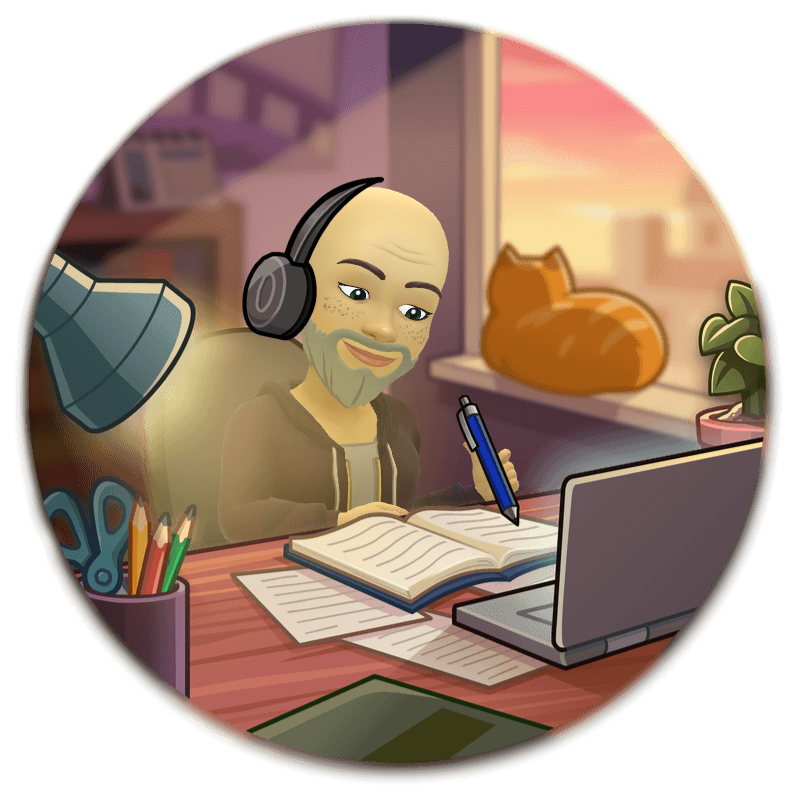
Ah, hyperfocus. It’s like the superhero power that comes with a tricky set of instructions. When it kicks in, it can feel like the ultimate productivity hack, an almost superhuman ability to laser-focus on a task to the exclusion of everything else. But it can also be a deep rabbit hole that sucks us in, making us lose track of time, responsibilities, and even basic needs. And this book? Well, this book is a perfect case study in the glorious, and slightly chaotic, power of my hyperfocus in action. Three days ago. That’s when the seed of this book was planted in my brain. I honestly can’t even recall the initial trigger – a fleeting thought, a random connection, perhaps just the universe deciding it was time. But once that idea took root, there was no gentle nurturing, no thoughtful planning. It was an immediate, urgent imperative. I had to start. Right then. The concept of adding it to a to-do list for future consideration? Utterly foreign. My brain had decided, and that was that. The metaphorical starting gun had fired, and I was off to the races. And it didn’t stop at simply thinking about it. Chapter One had to be written. Immediately. And once it was done, it wasn’t enough to just save it on my computer. It needed to be out there, in the world, even in its nascent form. So, up it went onto the website. A small victory, a tangible manifestation of this sudden, all-consuming drive. Then came the validation. As a card-carrying people-pleaser, the positive feedback from those first readers – friends who I knew would actually sit down and absorb the whole thing (bless their non-ADHD attention spans!) – was like rocket fuel. Their enthusiasm and praise sent a surge of dopamine through my system, further cementing my focus on this new project. Suddenly, anything else I was supposed to be doing took a backseat. Client work? Household chores? That important phone call I needed to make? All relegated to the periphery as I plunged headfirst into the next chapter. This is the exhilarating, yet potentially problematic, nature of hyperfocus. On the one hand, it allows for periods of intense productivity, where you can churn out work at an astonishing rate, completely absorbed in the task at hand. It’s in these moments that the “superpower” aspect really shines. Ideas flow freely, connections are made effortlessly, and you can feel an incredible sense of accomplishment. However, the flip side is the tunnel vision. When hyperfocus takes hold, it can be incredibly difficult to break free, even for essential things. Time ceases to exist. The gentle nudges of hunger, the insistent reminders of other obligations, the subtle cues from your body that you need to move or take a break – they all get drowned out by the intensity of the current focus. This can lead to neglected responsibilities, missed appointments, and a general imbalance in life. For entrepreneurs with ADHD, hyperfocus can be a powerful tool when directed effectively. It can allow us to dive deep into creative problem-solving, develop innovative ideas, and power through challenging tasks. However, without conscious awareness and strategies for managing it, it can also lead to burnout, procrastination on less engaging but equally important tasks, and strained relationships due to perceived neglect. My sudden immersion in writing this book is a perfect example. The initial burst of energy and focus allowed me to get started quickly, but the subsequent neglect of other responsibilities highlights the potential downside. It’s a reminder that while hyperfocus can be a valuable asset, it needs to be harnessed, not just followed blindly. Learning to recognise when it’s beneficial and when it’s becoming detrimental is a crucial skill for any ADHD entrepreneur. It’s about riding the wave when it’s productive but also knowing when to consciously steer back towards the shore before you’re completely swept away.
